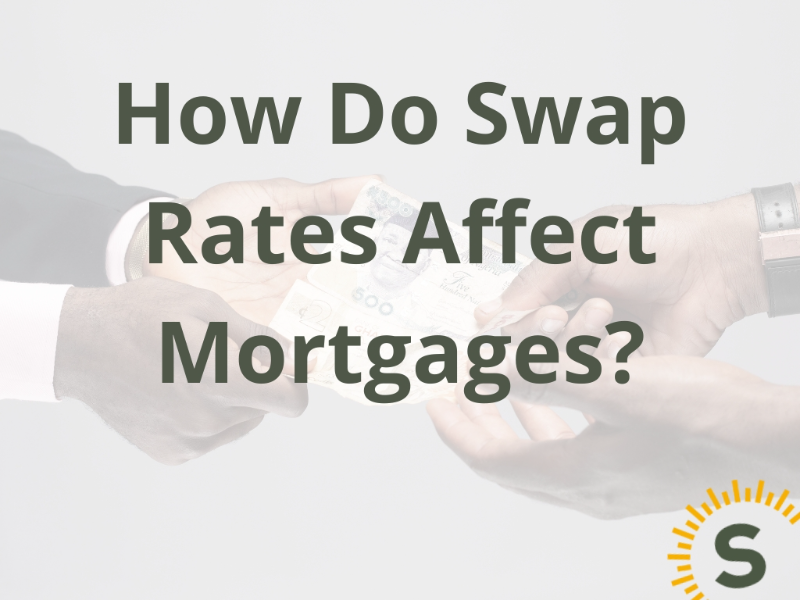
Interest-only mortgages have long been a topic of interest for homeowners and investors alike. It's not uncommon to find individuals asking, "do banks still offer interest only mortgages?" This question is particularly relevant in today's ever changing mortgage market.
Let's delve into this topic and provide some clarity on whether banks still offer interest-only mortgages including the use of repayment vehicles.
Yes, Banks still offer Interest Only Mortgages, but the criteria is stricter. Repayment vehicles are required as the borrowed amount must be repaid at the end. They can be used for buy-to-let properties or residential with a full repayment vehicle like investments, pensions, or another property.
Without a suitable repayment vehicle, it is unlikely that banks will approve an interest-only mortgage for residential purposes. However, Banks still offer Interest Only on a non-regulated basis, without a repayment vehicle for buy to let mortgages. This is an exception to the norm and the property is viewed as a repayment vehicle for its own loan.
A crucial element that comes into play with interest-only mortgages is the need for a solid repayment plan. This is because when your mortgage term concludes, you'll still owe the original borrowed amount. Various options can be considered for a repayment plan, including:
Each option has its own set of advantages and potential drawbacks, so it's important to assess them thoroughly before making a decision.
One scenario where an interest-only mortgage could be beneficial is if you're purchasing a buy-to-let property. In this case, you can typically sell the property at the end of the mortgage term to repay the capital you owe.
On the other hand, if you've used an interest-only mortgage to finance your home, you could potentially pay off your mortgage using a cash lump sum you've inherited or saved up. If this isn't feasible, selling your property to repay the lender could be your only option. This could work for individuals planning to downsize or those considering taking out a new mortgage.
A retirement interest-only mortgage is another type of interest-only mortgage that's worth mentioning. These mortgages typically only need to be repaid once you pass away, move into long-term care, or sell the property. They share similarities with other types of equity release schemes such as lifetime mortgages.
If you're over 55 years old, you could potentially use your pension, or a part of it, as a repayment vehicle for an interest-only mortgage. Up to 25% of your pension can be withdrawn tax-free. However, you'd need a substantial retirement pot to cover the cost of a whole mortgage with this method.
Equity investments can be an excellent strategy for those with significant amounts held in equities. However, you'll need to deal with the right lender as each lender will calculate things differently and use estimated valuations from various points in time.
Much like equities, these investments require proof of ownership from the borrower. Each lender will treat these assets differently during their assessment, so it's important to have a comprehensive understanding of your lender's policies.
Selling the property is a popular choice for those with a buy-to-let (BTL) mortgage. Ideally, the property will have increased in value over the life of the interest-only mortgage, allowing you to use it as your repayment vehicle.
Using a cash or Individual Savings Account (ISA) was a more common repayment method in the past. However, most lenders no longer accept this as a sole repayment vehicle.
Endowment policies were more popular choices previously, but there were instances where the returns generated did not sufficiently cover the remaining debt. However, some lenders could still consider this option if realistic growth rates can be proven.
You can apply for an interest-only mortgage directly, but the most competitive deals are usually available through brokers who specialise in this niche. Certain lenders, even larger high street names, will only offer interest-only products via an intermediary.
At the end of your mortgage term, you'll be required to repay the loan amount in full. There are several strategies you could use to repay your interest-only mortgage, including using savings and investments, switching to a repayment mortgage, using a lump sum from your pension, remortgaging, or selling your property.
Retirement interest-only mortgages, designed to help older borrowers, work in a similar way to a regular interest-only mortgage, but without a fixed end date. The lender receives full payment of the loan when the property is sold, when the homeowner moves into long-term care, or when they pass away.
There are a handful of lenders who still offer interest only mortgages. However, navigating this market could be difficult due to the strict criteria. We recommend speaking to a mortgage adviser to offer personal advice and options on your interest only mortgage needs. Speaking to a mortgage adviser will save you time going directly to each of the individual lenders to find out who can help you.
Some of the lenders that do offer Interest Only Mortgages include:
Many of these mortgage products could only be offered through an intermediary mortgage adviser.
In conclusion, while interest-only mortgages might not be as commonly offered as they once were, they are still available under certain circumstances. It's crucial to analyse your financial situation, understand the terms and conditions of such mortgages, and seek professional advice before making a decision. If you're asking "do banks still offer interest only mortgages?", the answer is yes - but with certain caveats and considerations.

Stuart is an expert in Property, Money, Banking & Finance, having worked in retail and investment banking for 10+ years before founding Sunny Avenue. Stuart has spent his career studying finance. He holds qualifications in financial studies, mortgage advice & practice, banking operations, dealing & financial markets, derivatives, securities & investments.
 No minimum
No minimum  Newcastle-under-Lyme, Staffordshire
Newcastle-under-Lyme, Staffordshire Free Consultations
Free Consultations
 No minimum
No minimum  Free Consultations
Free Consultations
 No minimum
No minimum  No obligation consultation
No obligation consultation
 No minimum
No minimum  No obligation consultation
No obligation consultation
 No minimum
No minimum  Free Consultations
Free Consultations
 No minimum
No minimum  No obligation consultation
No obligation consultation
 No minimum
No minimum  No obligation consultation
No obligation consultation
 No minimum
No minimum  Free Consultations
Free Consultations
 No minimum
No minimum  Coatbridge, Lanarkshire
Coatbridge, Lanarkshire Initial or Ongoing Consultation Fees
Initial or Ongoing Consultation Fees
 No minimum
No minimum  Initial or Ongoing Consultation Fees
Initial or Ongoing Consultation Fees
 £21,000 +
£21,000 +  Initial fee free consultation
Initial fee free consultation
 London, Greater London
London, Greater London No obligation consultation
No obligation consultation
 No minimum
No minimum  No obligation consultation
No obligation consultation
 No minimum
No minimum  Initial fee free consultation
Initial fee free consultation
 No minimum
No minimum  No obligation consultation
No obligation consultation
 No minimum
No minimum  No obligation consultation
No obligation consultation
 No minimum
No minimum  Initial fee free consultation
Initial fee free consultation
 No minimum
No minimum  Initial or Ongoing Consultation Fees
Initial or Ongoing Consultation Fees
 £51,000+
£51,000+  Free Consultations
Free Consultations
 No minimum
No minimum  No obligation consultation
No obligation consultation
 No minimum
No minimum  Initial fee free consultation
Initial fee free consultation
 £101,000+
£101,000+  Bishop's Stortford, Hertfordshire
Bishop's Stortford, Hertfordshire No obligation consultation
No obligation consultation
 No minimum
No minimum  Derry / Londonderry, County Derry / Londonderry
Derry / Londonderry, County Derry / Londonderry Free Consultations
Free Consultations
 No minimum
No minimum  Stockton-on-Tees, County Durham
Stockton-on-Tees, County Durham Free Consultations
Free Consultations
 No minimum
No minimum  Initial fee free consultation
Initial fee free consultation





Our website offers information about financial products such as investing, savings, equity release, mortgages, and insurance. None of the information on Sunny Avenue constitutes personal advice. Sunny Avenue does not offer any of these services directly and we only act as a directory service to connect you to the experts. If you require further information to proceed you will need to request advice, for example from the financial advisers listed. If you decide to invest, read the important investment notes provided first, decide how to proceed on your own basis, and remember that investments can go up and down in value, so you could get back less than you put in.
Think carefully before securing debts against your home. A mortgage is a loan secured on your home, which you could lose if you do not keep up your mortgage payments. Check that any mortgage will meet your needs if you want to move or sell your home or you want your family to inherit it. If you are in any doubt, seek independent advice.